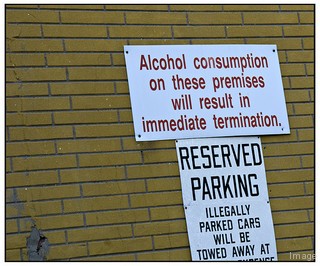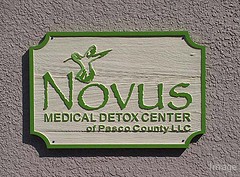You need to know what alcohol detox is never an easy thing to go through, but it’s a critical step for alcoholics looking to get their life back on track. Admitting there’s a problem is the hardest part and the first part, but then there’s plenty of difficult times to motor through up ahead. While anyone can say something like “just stop drinking,” it’s not that easy and for a true alcoholic.
The first step of any alcohol detoxification process should always be to see a doctor. While a lot of people bristle against this, there’s no question that you need to seek medical advice before starting. Some people will be able to start cold turkey without an issue, while some might be advised to wean off and others may need tablets or monitoring to be on the safe side.
An alcoholic who has a severe drinking problem from a long term addiction may actually need medical assistance to avoid death. These are extreme cases, but there’s no question that the addiction comes after a chemical need is formed in the body – and there are serious withdrawal symptoms when that addiction is no longer fed.
You’ll find once you talk to a doctor that there are a few options available when it comes to seeing through the alcohol rehab centers. There’s first the question of where you want to go to do the detox, whether at home or going to an actual alcoholism rehab center. The other is what method you’re going to use to clean out: cold turkey or by weaning yourself off.
The Alcohol Rehabilitation Facility
There are some obvious advantages and disadvantages to choosing the clinic over any home program for this purpose. One of the obvious advantages is checking yourself in putting you in an environment where drinking is not allowed, where you don’t have unlimited access to alcohol at any time like you would from home, and having qualified supervision can be extremely helpful – especially for hard or long term cases.
On the other hand, it’s necessary to know that being in a rehab center won’t force you there. The doors aren’t locked and you’re not forced to stay – so you still need the willpower to get through the alcohol detox because no one is going to force it on you.
The other up front issue is preference. Some people like a group therapy setting and that type of support, but people who are naturally closed or introverted to begin worth may not like it much at all and may not find that conducive to recovery.
The biggest issue with at home recovery is all about willpower and drive. While no one will force you to stay in a rehab clinic, you may feel encouraged to stay while there. At your home if you want to run to the convenience store at midnight because you’re craving booze, it’s easy to do.
This option is easier if you have people you can call on to be your support during this transition. Obviously, people who are friends, children and family can generally be far more helpful in influencing you to stick with it and improve yourself than people who are just strangers. You also have more control over your own detox, which for some people is very important to them.
Just about everyone is familiar with the cold turkey method. Tackling addiction this way means detoxing from alcohol by giving it up completely – no ten steps, no weaning off of it, just suddenly stopping.
For many people this is the best way to go because they fall back off the wagon again and again when trying to just wean themselves off. There is also a lot of symbolic strength to just making that full break, that mental shift, and pushing through until you reach your goal.
Withdrawal symptoms can be a significant issue, and if you talked with a doctor, chances are you would be given some type of benzodiazepine drug (Lorazepam, Diazepam, Librium, Valium, Ativan or Serax) or Nitrous oxide or Sodium oxybate to help treat some of the symptoms that are likely to pop up as problems because of withdrawal. Lessening the worst of the symptoms can make it easier for you to go through the process and see it to its completion.
If you are healthy enough to pull it off, most people and ex-alcoholics will recommend the cold turkey method to encourage that clean break.
What About Weaning?
Weaning is a good method of alcohol detox for people who just can’t handle the stress of the cold turkey method, whether it’s because of mental willpower, anxiety, alcoholic depression, or actual physical addiction. The process of weaning is a clear and defined plan to cut down on both the number and strength of drinks over time until you’re detoxed.
For a heavy beer drinker this might mean going from 18 cans a day of strong beer to 9 cans of lite beer the first week, then 6, then 3, then one a day. The idea is to get your body used to less alcohol and fewer drinks total to the point where you detox slowly, and then get to the point where you can eventually detox completely.
People going through this method should always have plenty of non-alcoholic liquids on hand as they may find the habit of constantly drinking something as hard to break as the actual alcohol. Water, Gatorade, Coca Cola, Pepsi Cola, Kool-Aid, or Juice are all good choices to help you kick this habit.
You’ll also want to do everything possible to keep your body healthy during this rough transition. This means dietary supplements, multi-vitamins (well described at dietarysupplementsvitamins.com), always staying hydrated, and balanced meals. The better you can make the rest of your body feel, the easier it will be.
Alcohol detoxification is never easy and it is never fun. However, by having a solid plan in place and knowing what your limits are before putting together a support system you set yourself up to succeed in getting free of alcohol addiction.
Check also facts about alcoholism with symptoms.



I am trying to recover from alcohol poisoning at home. Do you know Tylenol and tomato juice can help with it? Is it safe?
You should seek medical advice and maybe consider going to the ER. Tylenol is poor option since it is metabolized through the liver in addition to the alcohol.
Tomato juice has fluid and vitamin C which can be helpful to metabolize the alcohol but no substitute for proper medical care.